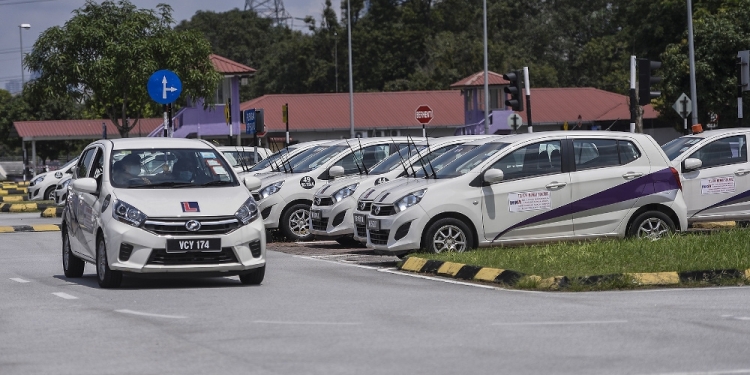The Malaysian Road Transport Department (JPJ) will suspend or revoke the permit of driving institutions if many of its students are found to have committed traffic offences and are involved in road accidents. It is expected to be introduced alongside the eTesting implementation that’s taking place in April 2022.
JPJ director-general Datuk Zailani Hashim revealed a code will be placed on the driving licence which will help identify the institute the traffic offenders have completed their driving course. He added that the method was still at a planning stage and was expected to be listed under the eTesting system. Zailani also shared that 80% of road accidents in Malaysia were due to human negligence.
While the intention is to nab driving schools that produce poor drivers, it is also worth pointing out that JPJ has the final say in deciding who passes or fails in their road exam. There were previous reports alleging some driving schools offer illegal “gerenti lulus” (Pass guaranteed) driving packages and the syndicate involved JPJ officers. In the spirit of transparency and accountability, JPJ should consider including a code on the licence to identify the officer in charge of the student’s exam.
At the moment, there are 10,569 driving instructors in Malaysia certified in line with Rule 11(4) of the Motor Vehicles (Driving Schools) Rules 1992. However, there is a backlog of 1,779 applications due to restrictions on seminars and courses.
To automate driving tests, JPJ is launching eTesting in April in conjunction with its 76th anniversary. The system will allow driving students to take their tests solo as they will be observed from a control room via cameras and sensors. The move will reduce the number of JPJ officers needed to evaluate drivers and this will help free up more manpower for enforcement work.
Road accidents are a serious problem in Malaysia with a total of 16,942 road crashes and 171 deaths reported over an 11-day period during Chinese New Year 2020. That’s an average of 15.55 deaths per day on Malaysian roads. For this Chinese New Year, the Royal Malaysia Police are using in-car radar and number plate scanners to catch traffic offenders on the road. The solution not only helps with speed detection but also to detect fraudulent vehicles that use fake number plates or vehicles that have been involved in criminal cases.
In case you missed it, Transport Minister Dr Wee Ka Siong recently revealed that JPJ is exploring new technologies such as RFID which will allow enforcement to be carried out through automation. If it does adopt RFID, they will ensure that it will be compatible for various use cases including toll payments so that each vehicle does not need to have more than one tag. There’s the possibility that JPJ may introduce RFID-embedded number plates similar to Indonesia or RFID-in-road-tax.
Malaysia currently aims to implement Multi-Lane Free Flow (MLFF) for toll highways with RFID by 2025. There are currently 33.1 million registered vehicles and 16.2 million driving and motorcycle licence holders nationwide.
[ SOURCE, IMAGE SOURCE ]
Related reading
- Police to use in-car radar and number plate scanners during CNY to catch traffic offenders
- Caught driving like an idiot on dashcam? The police could be knocking at your door soon.
- JPJ might introduce RFID-embedded number plate or road tax for Malaysian vehicles
- JPJ to introduce the automated driving test with “e-testing”. Here’s how it will work








